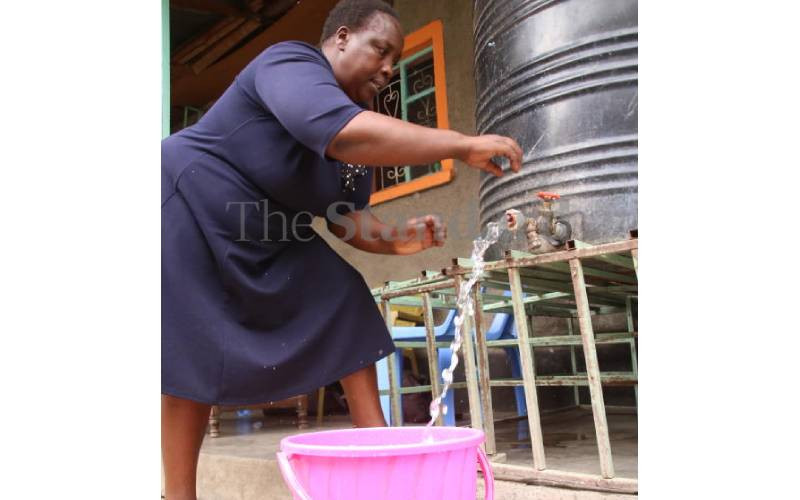×
The Standard e-Paper
Stay Informed, Even Offline

Agnes Makori, a landlady in Kaptembwa in Nakuru County has had to limit her water supply to her tenants following water rationing in Nakuru town due to the recent drought that has hit different parts of the country.
For a while now, the Nakuru Water Company has been supplying water to the residents for two days a week while the rest is channelled to the water kiosks.